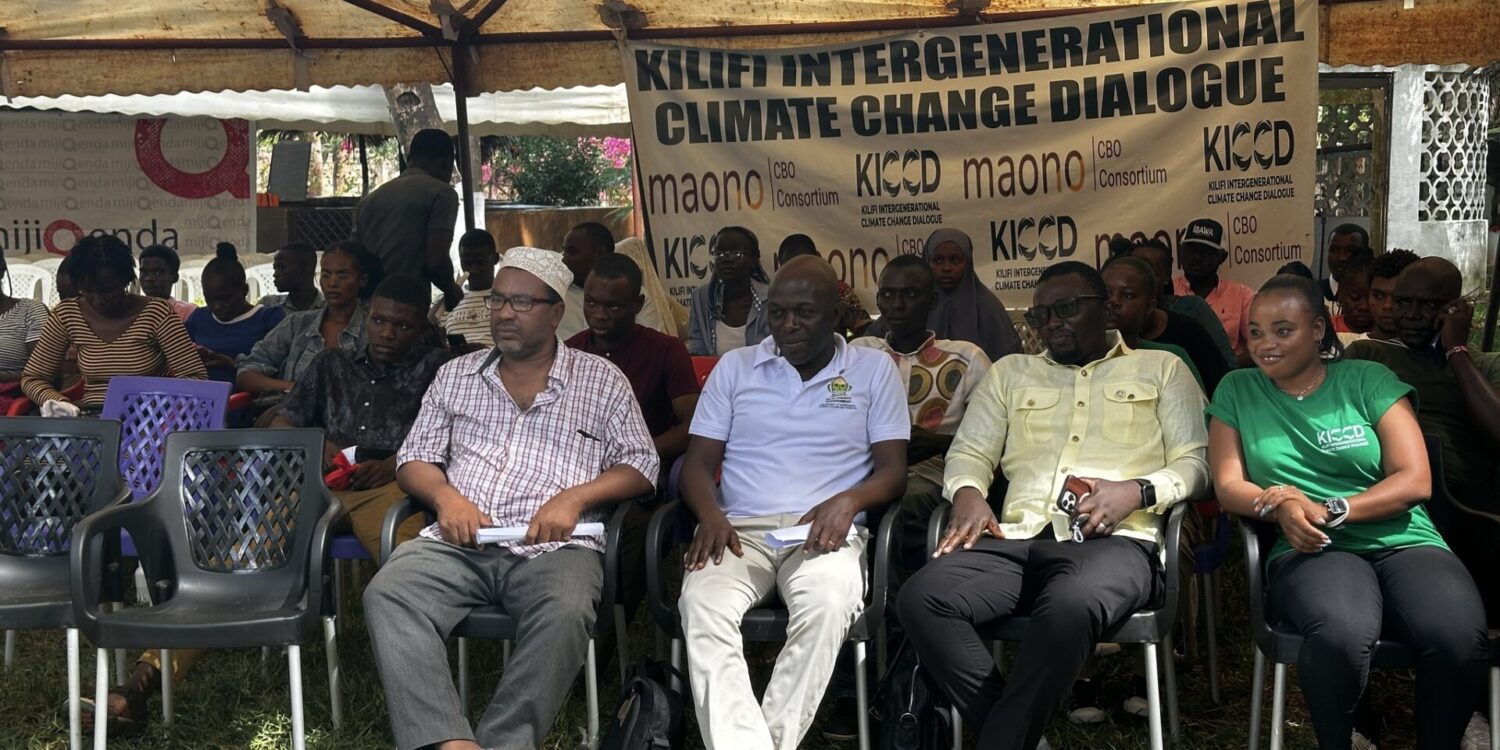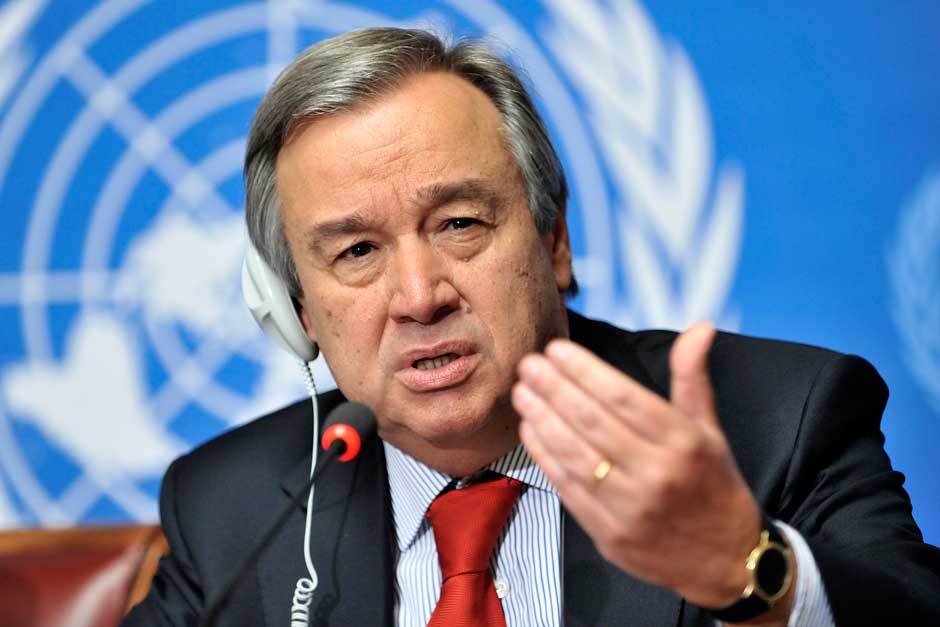The 2024 UN Climate Change Conference (COP29) is underway in Baku, Azerbaijan, highlighting the urgent need for action on climate change in both urban and rural areas. Urban regions often dominate these discussions due to their high population density, industries, and infrastructure, which intensify climate impacts. However, rural areas face distinct challenges that also demand urgent attention. To address this, COP29 is amplifying rural perspectives and emphasizing their role in global climate resilience.
Meanwhile, global temperatures are rising at an alarming rate. The World Meteorological Organization (WMO) projects 2024 to be the hottest year on record. This increase is not an isolated event but part of a troubling trend of relentless warming. Near-surface temperatures have climbed steadily in recent years, underscoring the growing risks of this accelerating pattern.
Scientists warn that Earth’s average temperature could rise by 1.5°C between 2030 and 2052. Worse still, current commitments might lead to a 3°C increase by 2100. This scenario would have severe consequences for urban areas, where high population density and pollution amplify risks. At the same time, rural areas would face equally dire impacts, such as disrupted water resources, altered farming cycles, and more frequent droughts and extreme weather events. These threats directly jeopardize rural livelihoods and could lead to further marginalization without targeted climate action.
Challenges Facing Rural Communities in the Climate Crisis
Rural communities worldwide face unique and severe challenges in the fight against climate change. With agricultural production at their economic core, changing rainfall patterns, erratic weather, and soil degradation threaten both food security and economic stability. Additionally, inadequate infrastructure and limited access to emergency response mechanisms leave rural populations particularly vulnerable to climate disasters.
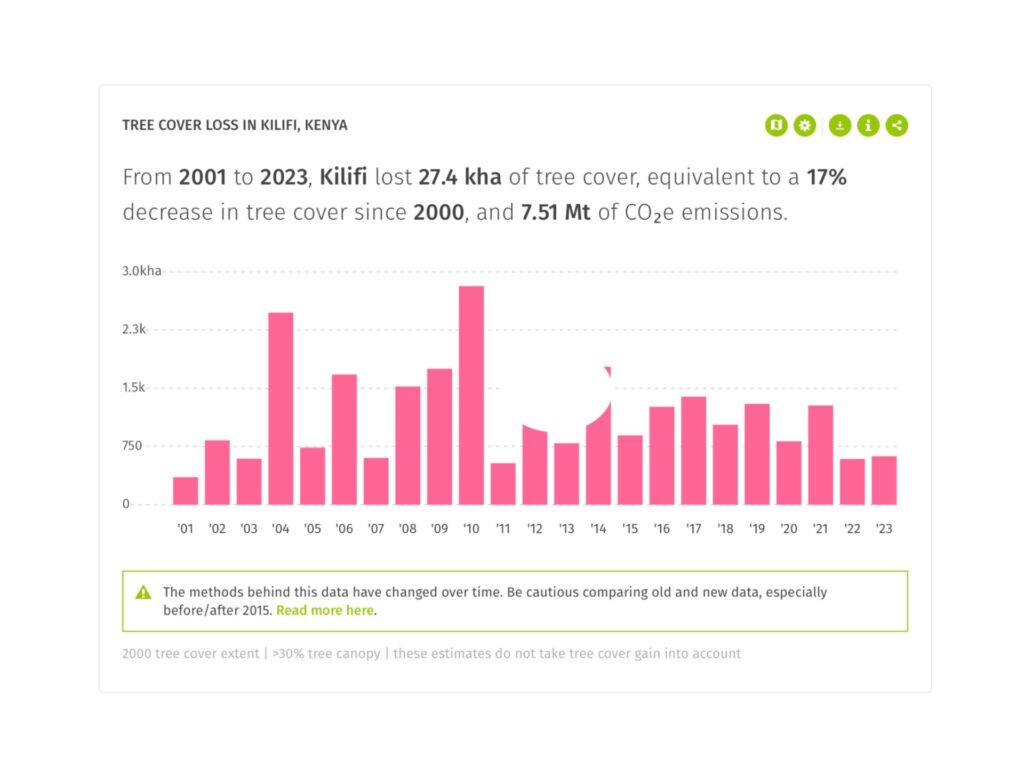
In Kenya, for example, rural farmers in counties like Kilifi already experience these effects. With prolonged droughts and inconsistent rainy seasons, farming families endure constant threats to their income and food sources. These challenges are compounded by limited access to renewable energy, clean water, and healthcare, which are essential for building climate resilience. Climate change solutions in rural areas must be tailored to local conditions, from sustainable farming practices to water conservation efforts, but without adequate funding and focused policies, progress will lag.
“In an era of climate extremes, loss and damage finance is a must,”
~ UN Secretary-General António Guterres
Strengthening Local Changemakers for Climate Action
Local changemakers play a critical role in bridging the gap between global climate policy and on-the-ground action. At Maono, we recognize the indispensable role of grassroots organisations in addressing local and global challenges. Their stories need to be told, their efforts supported, and their collaborations encouraged. Only then can we unlock the full potential of these local heroes in creating a sustainable and equitable future for all.
Wonderful things happen when we create community-centred solutions!

At Maono Space, we support changemakers who are taking action to inspire positive, sustainable change in their communities. For example, Okoa Youth Organisation is leading the way in climate change action by not only promoting recycling but also supporting the livelihood and safety of waste collectors. Through their commitment to reducing landfill waste, they buy plastics for recycling from collectors, ensuring a positive impact on both the environment and the community.
Recognizing the risks collectors face while sifting through unsanitary dumpsites, Okoa Youth created Resafi, a tool that connects waste collectors directly with households and small businesses who sort their waste at the source. This approach makes the process safer, more efficient, and ensures collectors can earn a living with dignity and safety. We couldn’t be prouder of Okoa Youth for this forward-thinking, community-first solution.
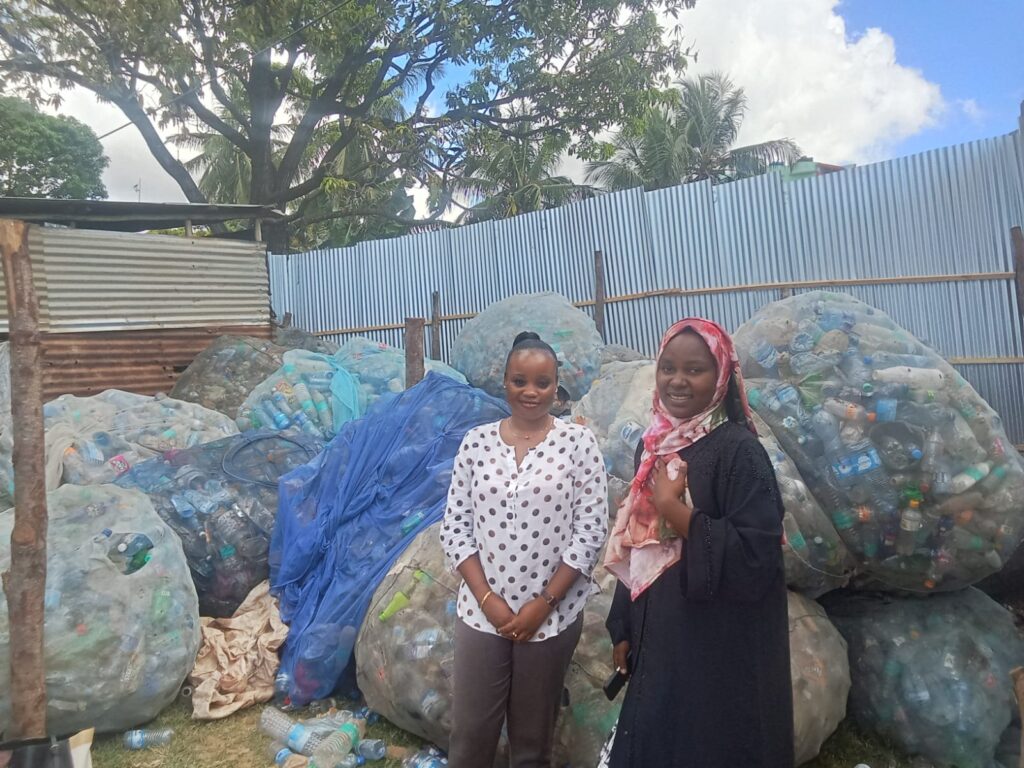
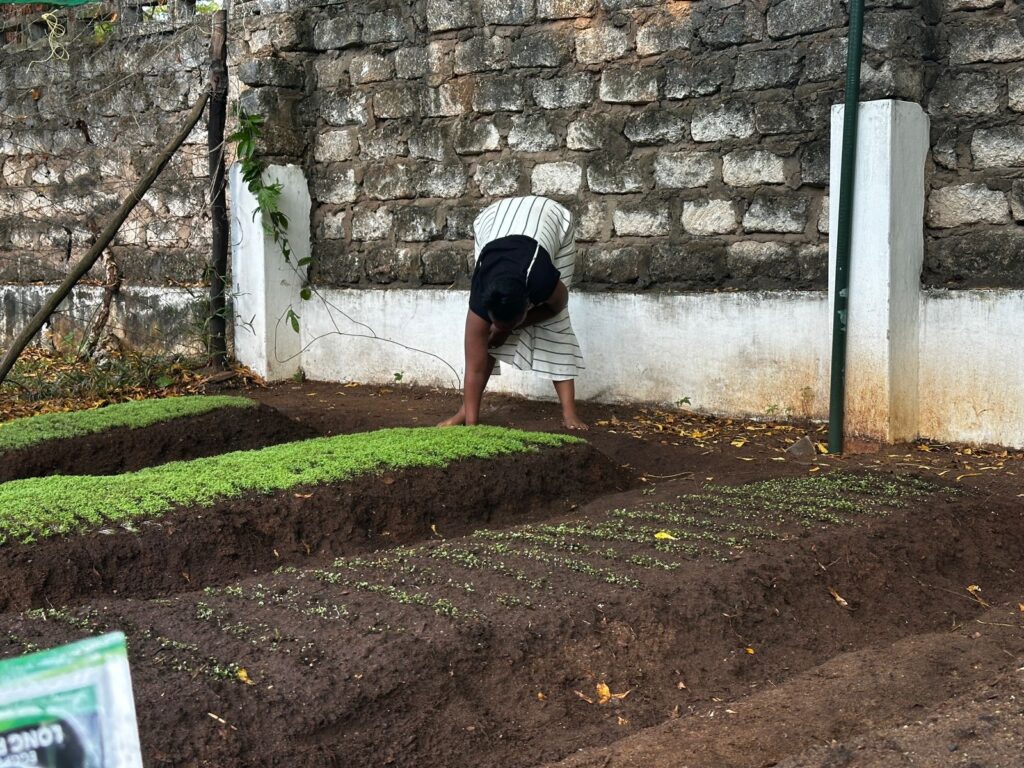
Additionally, we have witnessed the amazing work of Shella Environmental Youth Group on the launch of Leta Shamba Nyumbani, an inspiring initiative that empowers vulnerable women, including widows, young mothers, and persons with disabilities, through climate-resilient agriculture. This project brings sustainable kitchen gardens to their homes, promoting food security and resilience. With support from the Open Institute, Leta Shamba Nyumbani aims to uplift 250 women across Malindi Sub-county, transforming lives and strengthening the community’s resilience against climate impacts.
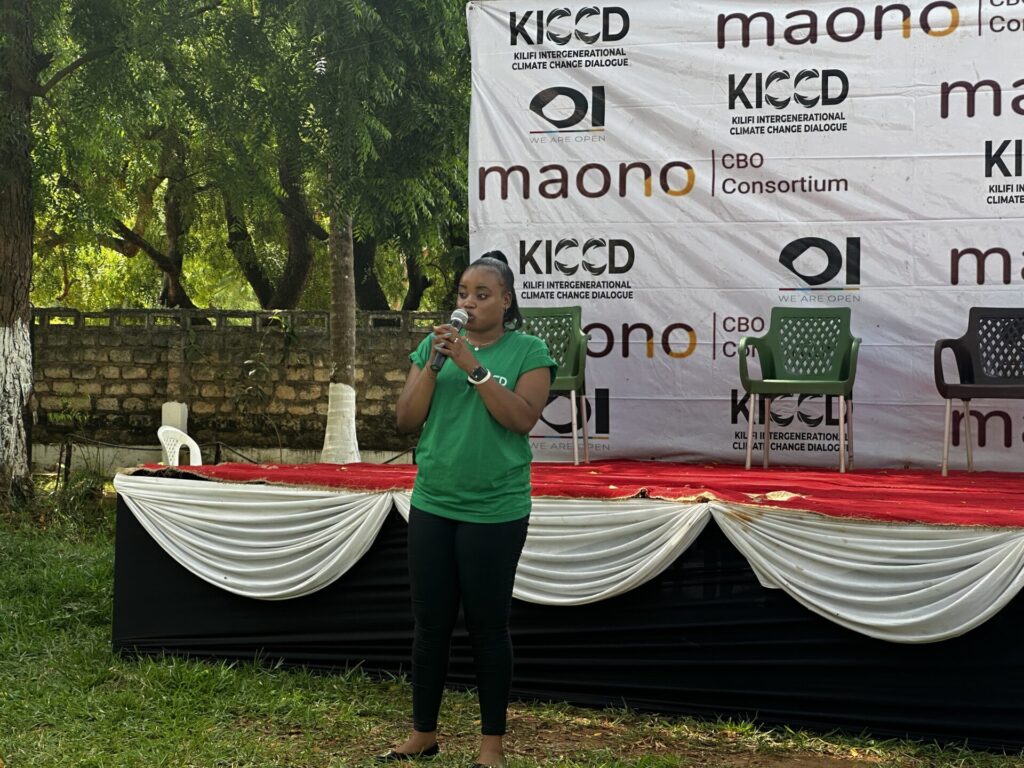
We believe in the power of localising global climate concepts to make it easy for communities to contribute actively to their solutions. At Maono Space, we recently hosted the Kilifi Intergenerational Climate Change Dialogue (KICCD). This an event that unites changemakers, experts, and community members to discuss actionable climate solutions.
The theme for this year’s #KICCD2 was “Unified Actions for a Climate-Resilient Community.” A key focus of the dialogue is addressing one of the most pressing struggles in climate action that is waste management. Through knowledge sharing sessions, local changemakers and experts are teaching participants practical strategies such as segregation, recycling, reducing waste, and ethical consumption.
We were honoured to have Kilifi County Director of Climate Change, Mr. Anthony Kanundu, grace this year’s event. The key takeaway? Protecting our environment and managing waste starts with each one of us. We must all take responsibility for the waste we produce and make thoughtful choices for a sustainable future.
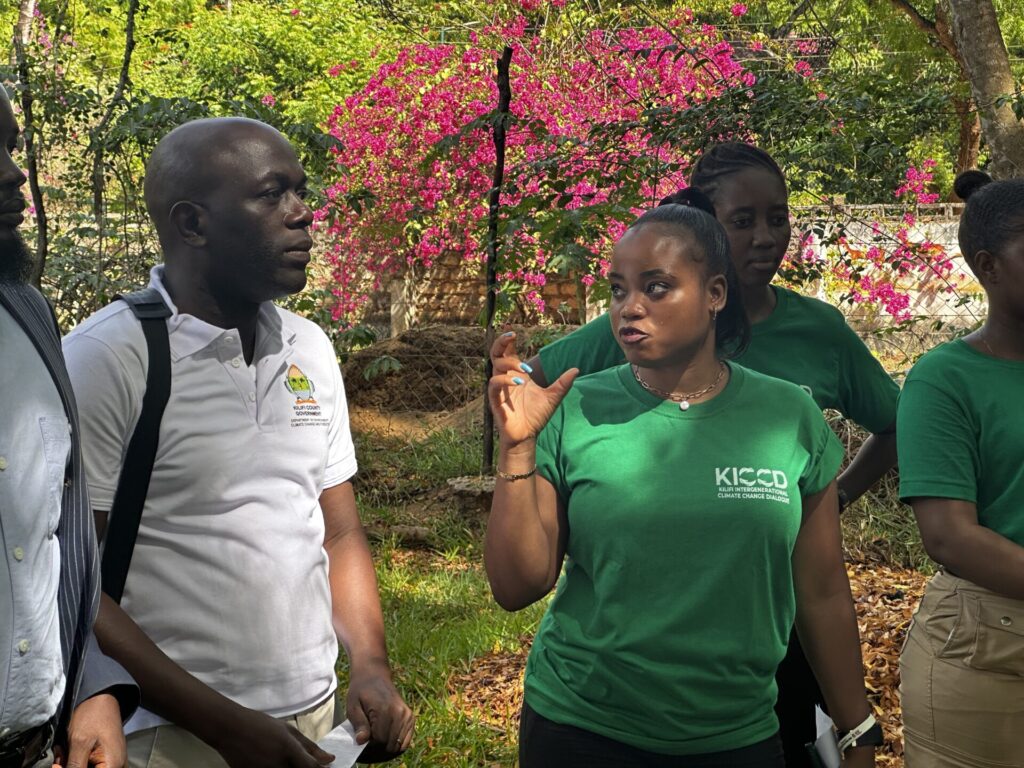
Looking Towards a Sustainable Future
With a clear path forward, many countries, including Kenya, are setting ambitious goals: by 2030, an increase in renewable energy capacity, and by 2050, significant reductions in greenhouse gas emissions. Achieving these goals will require global cooperation and local action, especially in rural areas where climate impacts are deeply felt. Maono Space, with initiatives like the Kilifi Climate Change Dialogue, is actively contributing to this mission by promoting local climate action and awareness
As we look towards the future, let’s make climate resilience accessible and equitable for all. We encourage countries, business leaders, civil society, financial institutions, and international organisations to support these initiatives. Together, we can pave the way for a just energy transition that lifts both urban and rural communities alike. Climate change may be a global issue, but local action, particularly in rural communities, is key to sustainable change.

